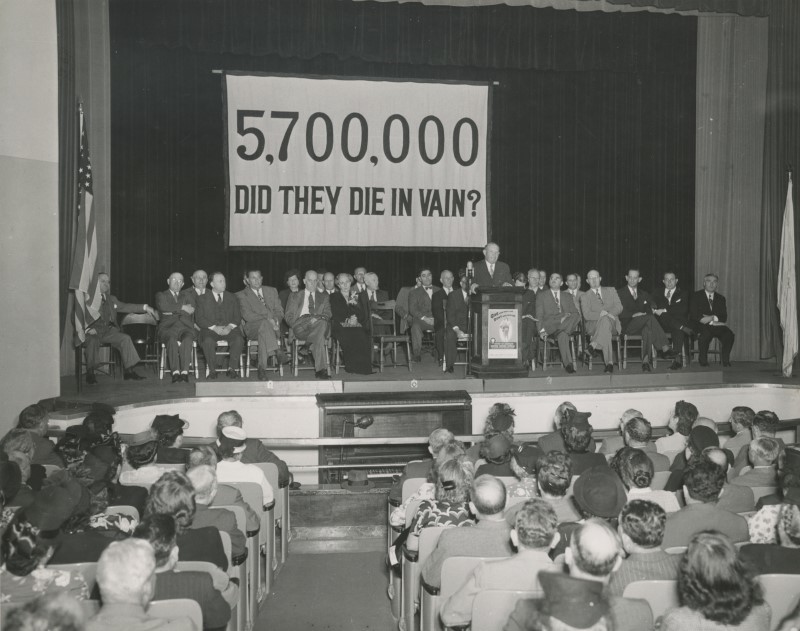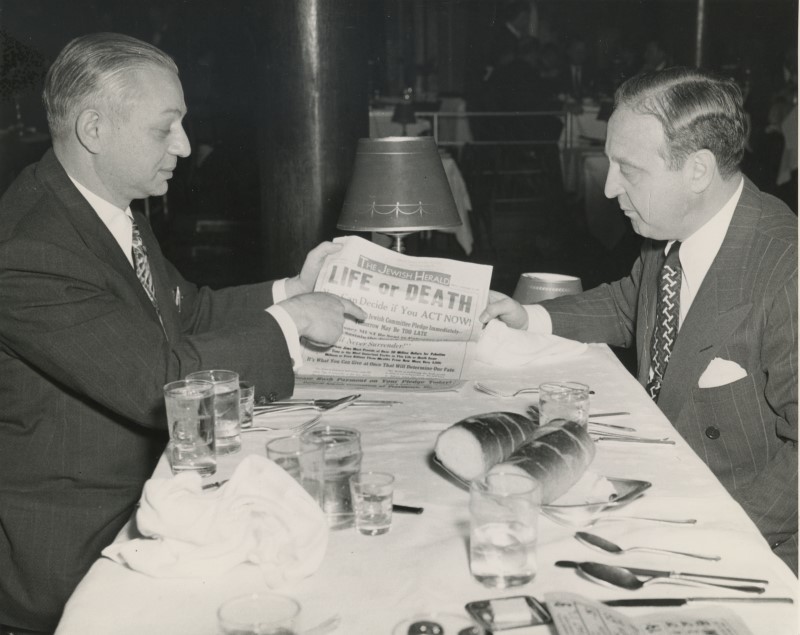The local Jewish community has long united when crises loomed
Over the years, there have been many responses from American Jews to threats to the Jewish community and anti-Semitism, ranging from silence to a united front to destructive divisions.
On a national level, Jews as a group kept quiet during the rampant anti-Semitism in the Civil War years (written about at great length by Brandeis University’s Jonathan Sarna). The Jewish response to Father Charles Coughlin and American Nazis in the early part of World War II was also largely muted. In fact, a united national front against anti-Semitism is a fairly recent phenomenon, based on the horror of the Holocaust and calls of “Never Again.”
Locally, the small Rhode Island Jewish community has a long history of uniting in the face of a crisis. One example is the founding of the General Jewish Committee of Providence. (In 1970, the GJC was renamed the Jewish Federation of Rhode Island, and in 2011 it was again renamed, as the Jewish Alliance of Greater Rhode Island.)
The GJC, which was officially incorporated in 1945, held its first annual conference in January 1924. Archibald Silverman, a jewelry factory owner, and Alter Boyman, a peddler, conceived this group in 1923 to unite the Providence Jewish community against the Immigration Act of 1924, or Johnson-Reed Act, which sought to halve the number of Eastern European immigrants allowed under the quota system put in place in 1921.
In addition to the conference, Rhode Island Jews held a mass protest in the Elks Auditorium in Providence in March 1923.
Despite their efforts, the Johnson-Reed Act passed, and the GJC fell silent.
In the summer of 1944, a group of local Jewish leaders came together to discuss the possibility of forming a central fundraising committee for the United Jewish Appeal. There were many fundraisers in Providence for the UJA between 1938 and 1944, but these were arranged fairly informally and were not under the auspices of any local group.
Hadassah Davis, who in 1995 wrote the definitive history of the Jewish Federation of R.I. in our journal, The Notes, states: “Beginning with the advent of the Nazi rule in Germany...the desperate plight of Jews in Europe and the uncertain situation in Palestine served as catalysts to centralize Jewish philanthropy [nationwide].”
During local annual campaigns for the UJA, individuals began to donate heavily because they felt that the group was helping Jews both locally and internationally where it was most needed.
On May 28, 1945, over 500 people, including representatives of 51 Jewish organizations, packed the Biltmore Hotel ballroom in Providence to vote to officially establish a “permanent Jewish communal organization.” At the suggestion of Alter Boyman, it was named the General Jewish Committee of Providence.
The extent of the European Holocaust was not yet known, but local contributions were unusually generous. An old man at the time was quoted as saying, “But for the grace of God I might have been one of them.”
JOSHUA JASPER is office manager and librarian/archivist at the Rhode Island Jewish Historical Association.











